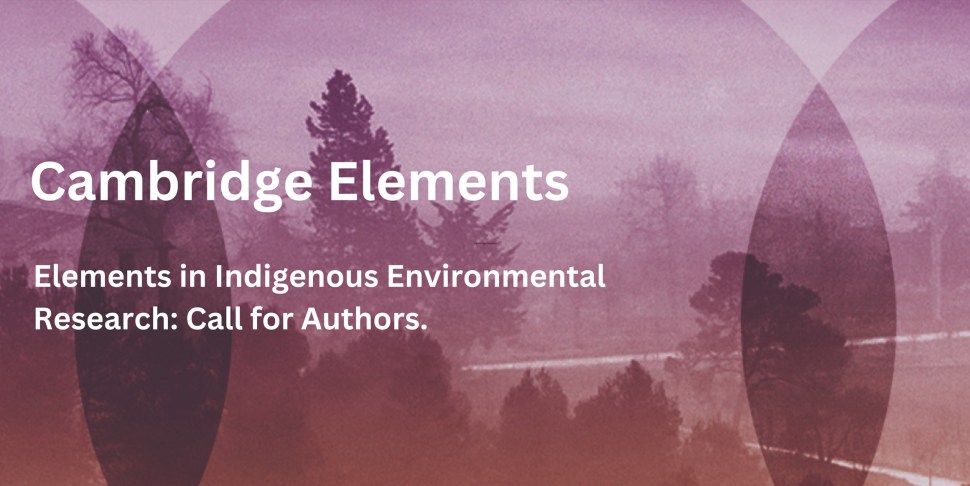Looking to publish a short book with Cambridge University Press on any aspect of Indigenous Environmental Research? If so, get in touch with the editors of Cambridge University Press’s new series Elements in Indigenous Environmental Research. It offers state-of-the-art interdisciplinary analyses within the rapidly growing area of Indigenous environmental research. The series investigates how environmental issues and processes relate to Indigenous socio-economic, cultural, and political dynamics.

Most of the Lead Editors are Indigenous, but not every contributor to the series need be. Editors include Dina Gilio-Whitaker, Clint Carroll, and Joy Porter. See also the Advisory Board comprised of scholars and practitioners of Indigenous environmental research.
Some of the benefits to Authors are:
Flexibility – With lengths of approximately 20,000 – 30,000 words (40 to 75 pages), Elements offer an opportunity to develop a theme in greater detail than is possible in a traditional journal article, yet more concisely than would be expected in a full-length book.
Rapid Publication and dissemination – Elements will be published within 12 weeks of acceptance of the final manuscript, and each manuscript will be copy-edited prior to publication.
Indexing – Relevant metadata for individual Elements will be sent to the key abstracting and indexing organisations, and Altimetric data for individual Elements will also be available.
Visibility – Elements will be promoted through global sales and marketing channels and will therefore reach the broadest possible international audience.
Copyright- Authors of Cambridge Elements will retain copyright in their work.
All thoughtful work that expands thinking on the main theme is welcome. A key aim of the series is to be both global in scope and highly interdisciplinary, covering a range of issues, including water politics, Indigenous geographies of health & disease, bioprospecting and resource extraction, methodologies and approaches, ecologies of sovereignty, climate justice and activism, geopolitics, and Indigenous territories, mobilities, migration and societal change.
Get in touch with Joy Porter (joy.porter [@] hull.ac.uk) as a first step or send Matthias Wong (matthias.wong [@] hull.ac.uk) a brief CV and a 250-word synopsis of how your Element in Indigenous Environmental Research will have research and policy impact.
You can also learn more about the series by watching this introduction video.
